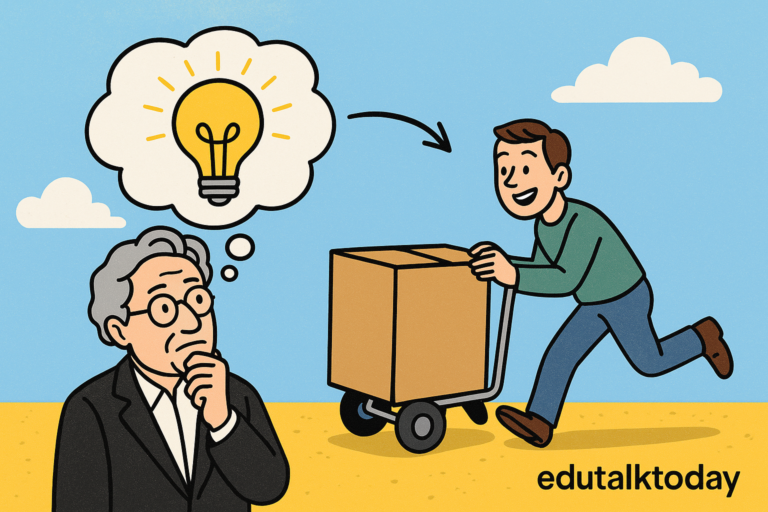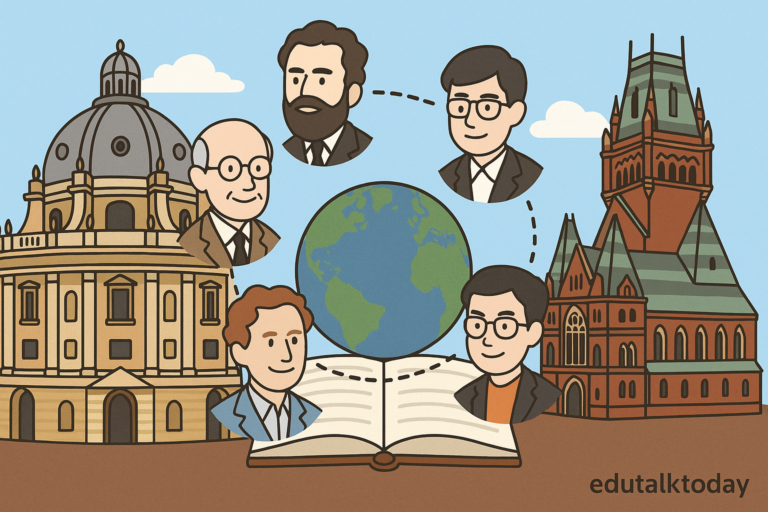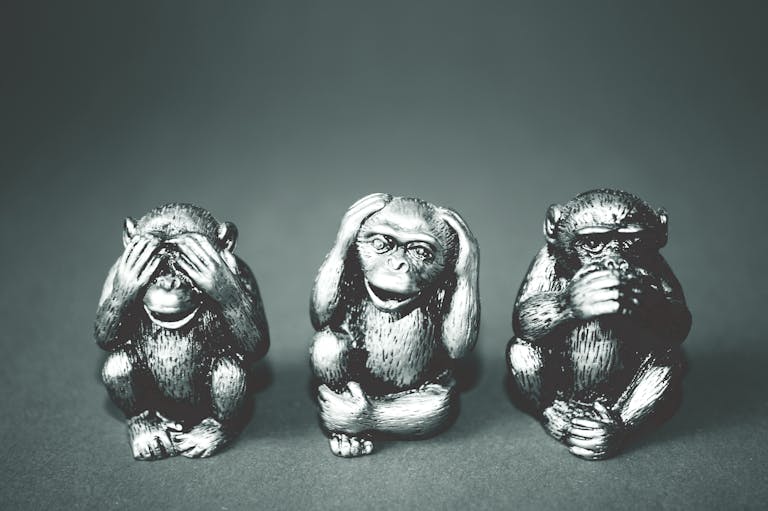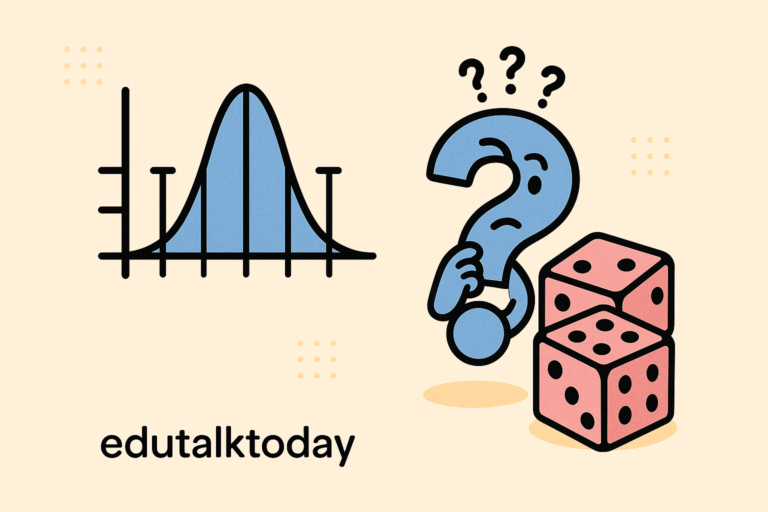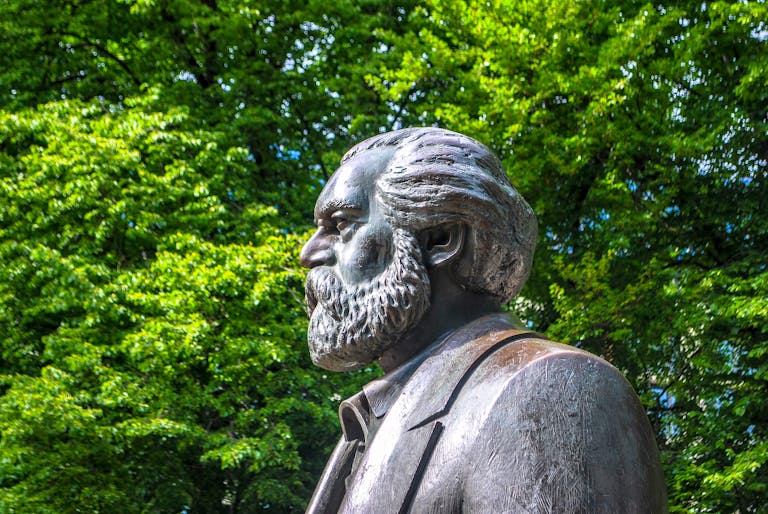Are Humans Fundamentally Good or Evil in Light of Rousseau and Freud’s Opposing Views
Have you ever wondered if people are born good at heart, or if deep down we’re all carrying darker impulses?
It’s a question that’s been around forever—one of those timeless debates that won’t go away because, honestly, we see evidence for both sides every day. When someone jumps in front of a car to save a stranger, it feels natural to say humans are good. But when we read about wars, violence, or exploitation, the darker side seems hard to deny.
Two of the biggest voices in this conversation are Jean-Jacques Rousseau, the 18th-century philosopher, and Sigmund Freud, the father of psychoanalysis. What’s fascinating is how different their takes are: Rousseau painted humans as naturally compassionate beings ruined by society, while Freud thought we were bundles of raw drives barely kept in check.
Let’s dig into Rousseau first, because his optimism sets the stage for everything.
Rousseau and the belief in natural goodness
Rousseau was the kind of thinker who shook things up. At a time when many philosophers were focused on rationality, laws, and order, he boldly claimed that humans in their natural state are gentle and good. Sounds almost romantic, right? He pictured early humans—what he sometimes called “noble savages”—as free, peaceful, and empathetic. For Rousseau, it wasn’t people themselves who were corrupt, but the systems they built. Civilization, with its property, competition, and inequality, was the real culprit.
Humans before society
Think about how kids behave before they fully learn the rules of competition. If you’ve seen toddlers playing, you’ll notice that they’ll often comfort another child who’s crying or share a toy without being told. Rousseau would point at this and say, “See? That’s the natural human heart.” In his view, compassion is a built-in instinct—not something society teaches us, but something we already have.
Of course, critics might argue, “Well, toddlers can also grab toys and scream ‘Mine!’” But Rousseau believed even those moments of selfishness were shaped by an environment already saturated with the idea of ownership. Once we introduce comparison and inequality—when one kid has more toys than another—the purity of natural compassion gets clouded.
The corrupting power of society
Rousseau’s famous line, “Man is born free, and everywhere he is in chains,” captures this perfectly. He didn’t mean literal chains but the invisible bonds of social hierarchies, rules, and expectations. Imagine living in a small village where land and food are shared. Life would probably feel more cooperative. Now imagine moving into a big city where success is measured by wealth, status, and possessions. Suddenly, people compete, envy rises, and trust erodes. For Rousseau, civilization itself plants the seeds of selfishness and cruelty.
A real-world example? Consider social media. At its best, it connects us, lets us show support, and spreads empathy during crises. But it also fuels envy, comparison, and trolling—reminding us how competition and artificial standards can bring out the worst in us. Rousseau would nod knowingly and say, “Told you so.”
Education and reform as hope
Now, Rousseau wasn’t just being dreamy. He believed that if society had corrupted human goodness, society could also be reshaped to nurture it. He was huge on education. In his book Emile, he argued that children should learn in ways that protect their natural curiosity and kindness instead of crushing it with rigid rules. In modern terms, think of project-based learning or Montessori-style classrooms, where kids explore and cooperate instead of memorizing facts under pressure.
He also believed in reforming social structures. His political works pushed for equality and fairness, with the idea that if we built better systems, people’s natural compassion could flourish again. That’s pretty radical for his time, when monarchies and rigid class systems ruled the day.
Why Rousseau still matters
So why should we care about Rousseau now? Because his ideas are still everywhere. Modern debates about whether poverty drives crime, or whether inequality fuels violence, echo Rousseau’s claim that social systems shape human behavior. Even when we talk about “restorative justice” in schools or prisons—focusing on healing rather than punishment—we’re channeling a bit of Rousseau’s optimism.
At the same time, it’s worth pausing to ask: Is he too optimistic? Are humans really good deep down, just waiting for better conditions? Or is there something darker built into us that can’t simply be reformed away? That’s where Freud enters the picture—and he’s about to complicate things.
Freud and the darker side of human nature
If Rousseau made you feel all warm and hopeful about people, Freud is here to pull the rug out from under you. Sigmund Freud, the father of psychoanalysis, looked deep into the human mind and didn’t like everything he found. While Rousseau was convinced that society spoils natural goodness, Freud argued that what’s inside us is already messy, raw, and even dangerous. Civilization doesn’t corrupt us, he said—it barely manages to keep us from tearing each other apart.
The unconscious mind
Freud’s big idea was the unconscious: the part of our mind we don’t have direct access to, yet it drives so much of what we do. He broke it down into three main players:
- The id, which is all about primal desires—pleasure, aggression, and impulses that want instant satisfaction.
- The ego, which tries to balance those wild urges with the reality of the world.
- The superego, our internalized moral compass, shaped by parents, culture, and society.
For Freud, being human meant living in a constant tug-of-war. The id pushes us toward selfishness and violence, while the superego demands restraint, and the ego scrambles to mediate. Rousseau believed humans were born innocent until society spoiled them. Freud countered: “Nope, you’ve got a wild animal inside you already.”
Civilization as a leash
One of Freud’s most famous works, Civilization and Its Discontents, lays it out clearly: civilization exists to control our destructive instincts. Think about laws, religions, or social rules—they all act like guardrails to keep our darker impulses in check. But here’s the twist: Freud argued that civilization can never completely succeed. Suppress an instinct, and it doesn’t disappear; it just hides and finds new outlets.
For example, take aggression. You can’t just erase it, so societies channel it into things like sports, rivalries, or even business competition. It’s like giving the wolf inside us a chew toy. But the wolf is still there, and sometimes it slips its leash. That’s why Freud wasn’t shocked by wars, crimes, or sudden bursts of cruelty. To him, they were proof of what was always lurking beneath the surface.
Everyday examples of Freud’s point
We don’t have to look far to see Freud’s ideas in action. Road rage is a perfect modern example. A mild-mannered office worker can suddenly turn into a furious driver when cut off in traffic. That’s the id bursting through. Or think about scandals involving powerful figures—politicians, celebrities—who get caught up in affairs or corruption. Freud would say, “Of course. The drives never go away. They just bide their time.”
Even something as simple as dark humor fits Freud’s theory. Jokes about taboo topics often make us laugh because they give us a safe outlet for thoughts we usually suppress. The joke, in a way, is the ego’s clever trick for letting the id peek out without causing chaos.
Freud’s pessimism
Unlike Rousseau’s hopeful vision of reform, Freud wasn’t optimistic. He saw conflict as built-in. Even when civilization does its best, it comes at a cost: guilt, anxiety, and frustration from constantly suppressing what we really want. That’s why he thought true harmony was impossible. At best, we live in uneasy peace, balancing our instincts with the rules around us.
It sounds grim, but Freud wasn’t trying to make us despair. He wanted us to be honest about what drives us. Pretending humans are naturally pure, he argued, only blinds us to the forces we need to manage. In his eyes, understanding our darker impulses is the first step toward dealing with them.
Rousseau vs Freud
Now comes the fun part: putting these two thinkers side by side. They’re like philosophical opposites, one brimming with hope and the other bristling with suspicion. And honestly, both still shape how we see the world today.
Where they clash
- View of human nature: Rousseau says we’re born good, Freud says we’re born driven by dangerous impulses.
- Role of society: Rousseau thinks society ruins us; Freud thinks society saves us (even if imperfectly).
- Possibility of harmony: Rousseau believes in reform and education; Freud believes conflict is unavoidable.
That’s about as stark a contrast as you can get.
A modern lens
Let’s test their ideas with some modern scenarios.
- Crime and poverty: If someone commits a crime, Rousseau would ask, “What social conditions pushed them there? Did inequality, neglect, or lack of opportunity corrupt their natural goodness?” Freud, though, might shrug and say, “The aggressive drives were always there. Poverty just lowered the guardrails.”
- War and violence: Rousseau would argue wars come from corrupt systems—power-hungry leaders, greedy nations, unequal access to resources. Change the system, and peace is possible. Freud would reply, “No matter how fair you make things, humans will find ways to fight. Aggression is baked in.”
- Education: Rousseau champions gentle, nurturing education to bring out our natural compassion. Freud would likely warn that no education system can erase the id; at best, it can help children learn how to manage those impulses.
Finding the middle ground
What’s fascinating is that both views feel true depending on the day. When we see communities come together after a disaster, Rousseau seems right—human kindness shines through. When we see cycles of violence repeat despite progress, Freud’s shadow falls heavy.
Some modern psychologists even blend their perspectives. For example, research on cooperation in evolutionary biology shows that humans have strong tendencies toward empathy and helping—very Rousseau. At the same time, studies on aggression and competition reveal instincts that look very Freudian. Maybe we’re not purely good or purely dark, but a cocktail of both.
Why the debate still matters
This isn’t just a dusty philosophical argument. How we answer the question shapes everything from politics to parenting. If we think people are basically good, we might push for systems that trust individuals—like restorative justice or community-driven projects. If we think people are ruled by dangerous instincts, we might favor stricter laws, surveillance, and institutions to keep us in line.
Either way, Rousseau and Freud still whisper in our ears whenever we talk about human nature. And maybe the tension between them is what keeps the debate alive—it forces us to keep questioning who we really are.
Final Thoughts
So, are humans naturally good or naturally evil? Rousseau and Freud gave us two radically different answers, and the truth probably lives somewhere in between. Rousseau reminds us not to underestimate human compassion and the power of better systems. Freud warns us not to ignore the darker drives lurking inside. Together, they paint a picture that’s messy but real: we’re capable of extraordinary kindness and shocking cruelty, often in the same breath.
Maybe that’s the real takeaway—it’s not about choosing one side, but learning to hold both truths. If we can recognize our capacity for both good and evil, we can build a world that nurtures the best in us while keeping our worst impulses in check. And honestly, that’s a challenge worth taking on.
